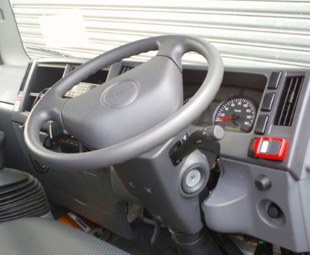Telematic slowdown

The telematics industry has grown by leaps and bounds, with tracking units offering fleet operators features to help control soaring fuel costs, minimise vehicle wear and tear, improve driver behaviour, control fuel theft and to track and manage fleet vehicles in real time … but GPS Tracking Solutions, part of the Eqstra Group of companies, has taken things a step further.
It’s tracking unit offers speed governing, as speeding is widely recognised as the biggest contributor to accidents and fuel inefficiency. It also leads to faster tyre erosion and engine deterioration – notes GPS Tracking Solutions; a company that is proudly South African.
“The unit and its associated software have been designed and built in South Africa to meet South African conditions,” says Graeme Steyn, managing director of GPS Tracking Solutions. “The system saves our clients more than 40 percent of administration time and they are able to view and intervene in real time, resulting in a significant increase in productivity.”
The speed curbing technology caps the speed on any chosen vehicle in a fleet. Should the vehicle exceed the speed limit, a buzzer sounds – warning the driver of the transgression. If the driver fails to reduce the speed within a five-second time limit, the GPS unit prevents further acceleration and the vehicle will slowly return to the allowed speed limit (at which time full power will be restored).
Biometrics, or finger print identification, is also integrated into the unit to control vehicle usage; the vehicle won’t start unless an authorised driver is identified. GPS Tracking Solutions adds that this ensures a vehicle cannot be driven by any driver whose licence has expired, or who does not have the correct licence type for that category of vehicle. It also allows fleet managers to manage fine allocations more efficiently.
Excessive idling can also be curbed through a shut-down feature – offering three-, five- or ten-minute idling intervals before the engine is switched off. It is also possible to program the unit to switch off the engine in the event of overheating or a drop in oil pressure. Once the situation returns to normal, the unit can be reset remotely, thereby eliminating the need to a send a mechanic to the vehicle.
To further assist fleet managers to control their fleets more efficiently, a built-in bureau service sends out notifications and reports via email and SMS on an agreed-upon schedule.
Published by
Focus on Transport
focusmagsa




